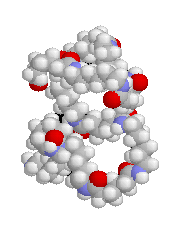Checking Out the Varied Applications and Benefits of Polymers in Different Industries
Polymers, with their diverse series of buildings and performances, have come to be crucial in different markets, each reaping one-of-a-kind take advantage of their application. Polymers. From boosting safety and efficiency in the automobile market to transforming clinical gadgets in the healthcare market, polymers play an essential role. Their environmentally friendly nature is altering the landscape of sustainability techniques. As we explore the midsts of polymers in electronic devices, we reveal cutting-edge advancements, while their structural stability transforms the realm of construction and facilities. The prevalent influence of polymers throughout markets is a testimony to their convenience and versatility, shaping the future of plenty of markets.
Automotive Industry Applications
Polymers play a critical function in boosting the efficiency and durability of various elements within the automobile industry. These versatile materials are extensively used in the production of various parts, ranging from interior parts to under-the-hood applications. One noticeable usage of polymers in the vehicle sector is in the production of light-weight parts. By replacing traditional steel get rid of polymer-based options, vehicles can attain better fuel efficiency without endangering on toughness or safety and security.

Health Care Sector Advantages
In various medical care applications, the benefits of using polymers are widely recognized for their diverse variety of advantageous residential or commercial properties. Polymers play a critical duty in the healthcare market as a result of their convenience, biocompatibility, and cost-effectiveness. Among the primary benefits of polymers in health care is their capacity to be customized to particular requirements, such as versatility, toughness, and biodegradability, making them optimal for a wide variety of medical applications.
Polymer-based products are thoroughly made use of in medical tools, such as catheters, implants, prosthetics, and medication delivery systems, due to their biocompatibility and capacity to simulate natural tissues. These materials can minimize the danger of allergies or denials, improving person safety and results. Furthermore, polymers are light-weight, making them suitable for wearable clinical gadgets and guaranteeing patient comfort.
Moreover, polymers make it possible for the development of cutting-edge treatment approaches, such as hydrogels for cells design and nanocomposites for targeted medication distribution. Their ease of processing and sanitation makes them necessary for maintaining high requirements of health in health care setups. In general, the diverse advantages of polymers contribute dramatically to innovations in medical innovation and person treatment.
Ecological Advantages of Polymers

Moreover, polymers can add to power financial savings due to their light-weight nature. In industries such as transport, lightweight polymer products can help in reducing fuel intake and greenhouse gas exhausts. In addition, polymers can enable the development of energy-efficient items such as insulation materials that improve power preservation in structures.
In addition, polymers play an essential duty in lowering water contamination. As an example, the usage of polymer-based purification systems can successfully get rid of pollutants and impurities from wastewater, safeguarding water sources and environments. In general, the ecological benefits of polymers make them useful properties in promoting sustainability and eco-friendly practices across different industries.
Polymers in Electronic Devices and Modern Technology
Considering the raising need for cutting-edge and sustainable solutions in modern-day sectors, the integration of innovative polymer technologies in the realm of electronic devices and modern technology has arised as a crucial approach for driving efficiency and performance. Polymers have reinvented the electronics sector by enabling the manufacturing of lighter, a lot more adaptable, and resilient electronic gadgets. From smart devices to clinical tools, polymers play a vital role in improving item layout and functionality.
One considerable advantage of polymers in electronics is their insulating homes, which aid protect fragile electronic components from ecological elements and electrical interference. Furthermore, polymers are important in the advancement of flexible screens, wearable modern technology, and printed electronics, providing limitless possibilities for developing wise and interconnected devices.
Moreover, the use of polymers in digital packaging has caused innovations in miniaturization and thermal administration, boosting the overall performance and integrity of electronic systems. As technology continues to progress, the convenience and versatility of polymers will most certainly drive even more technology in the electronics industry, shaping the future of technology.
Function of Polymers in Building and Infrastructure
Polymers offer many benefits in the building industry due to their flexibility, toughness, and cost-effectiveness. One essential duty of polymers in construction have a peek at this site is their use in finishes and sealants, supplying defense against environmental variables such as dampness, UV radiation, and rust.
Additionally, polymers play a critical duty in lasting building and construction techniques by allowing the advancement of energy-efficient structures. Shielding products made from polymers aid control interior temperature levels, reducing the demand for heating and cooling down systems and inevitably reducing power intake - Polymers.
Verdict
Finally, polymers play an essential duty in various markets such as automobile, medical care, ecological, electronics, and building and construction. Their flexible buildings make them beneficial in producing cutting-edge services and products. From enhancing gas efficiency in cars to improving clinical my explanation gadgets, polymers supply many advantages. In addition, their effect on minimizing waste and promoting sustainability highlights their relevance in modern applications. The extensive use polymers demonstrates their substantial payment to advancing technology and boosting lifestyle.